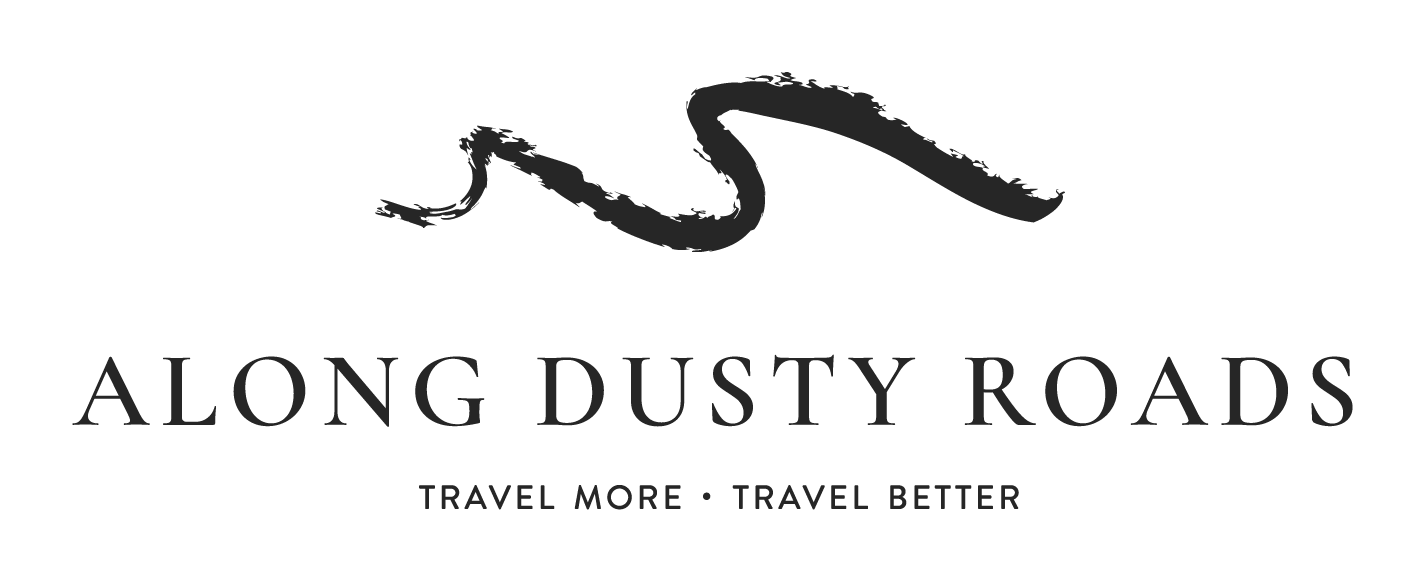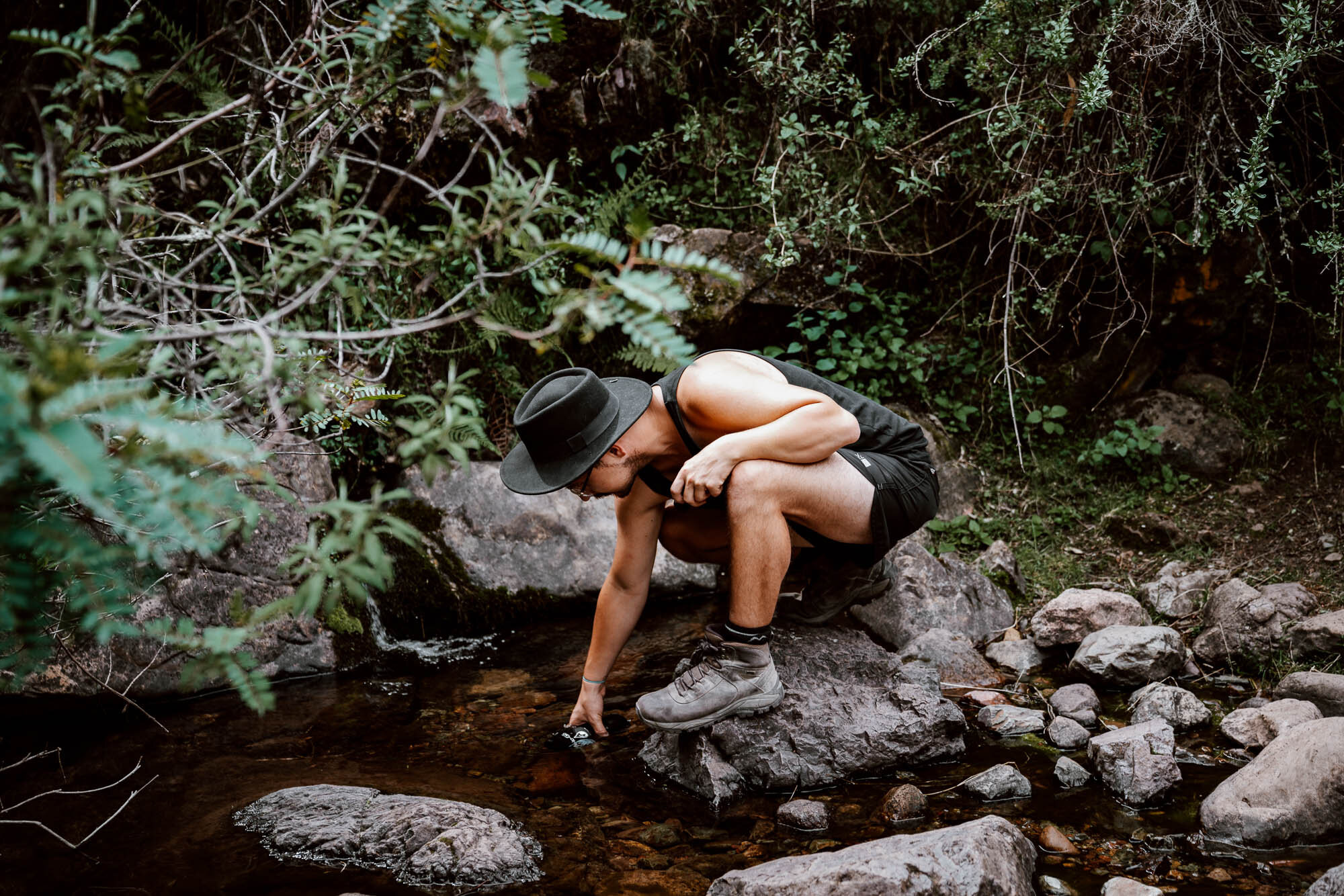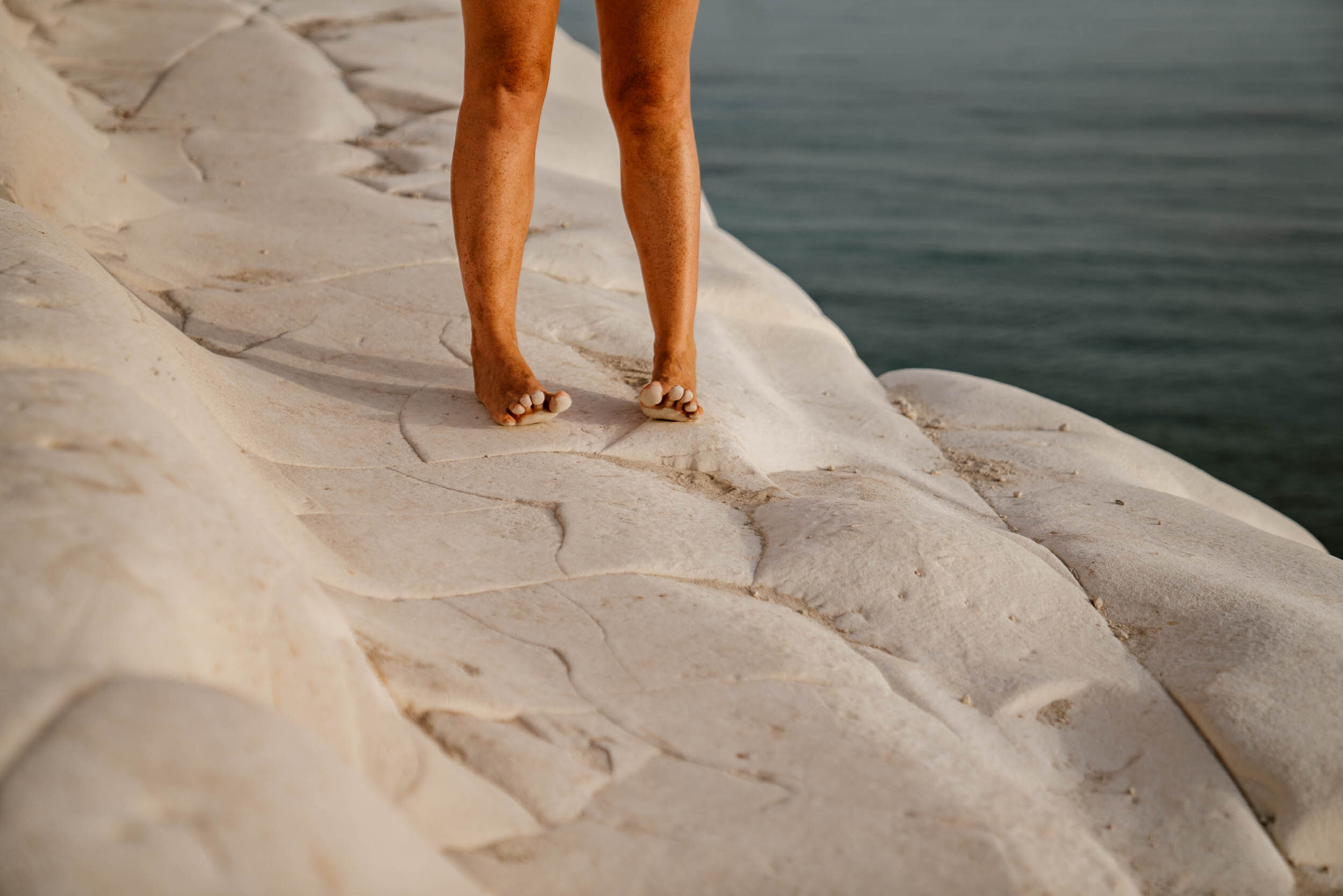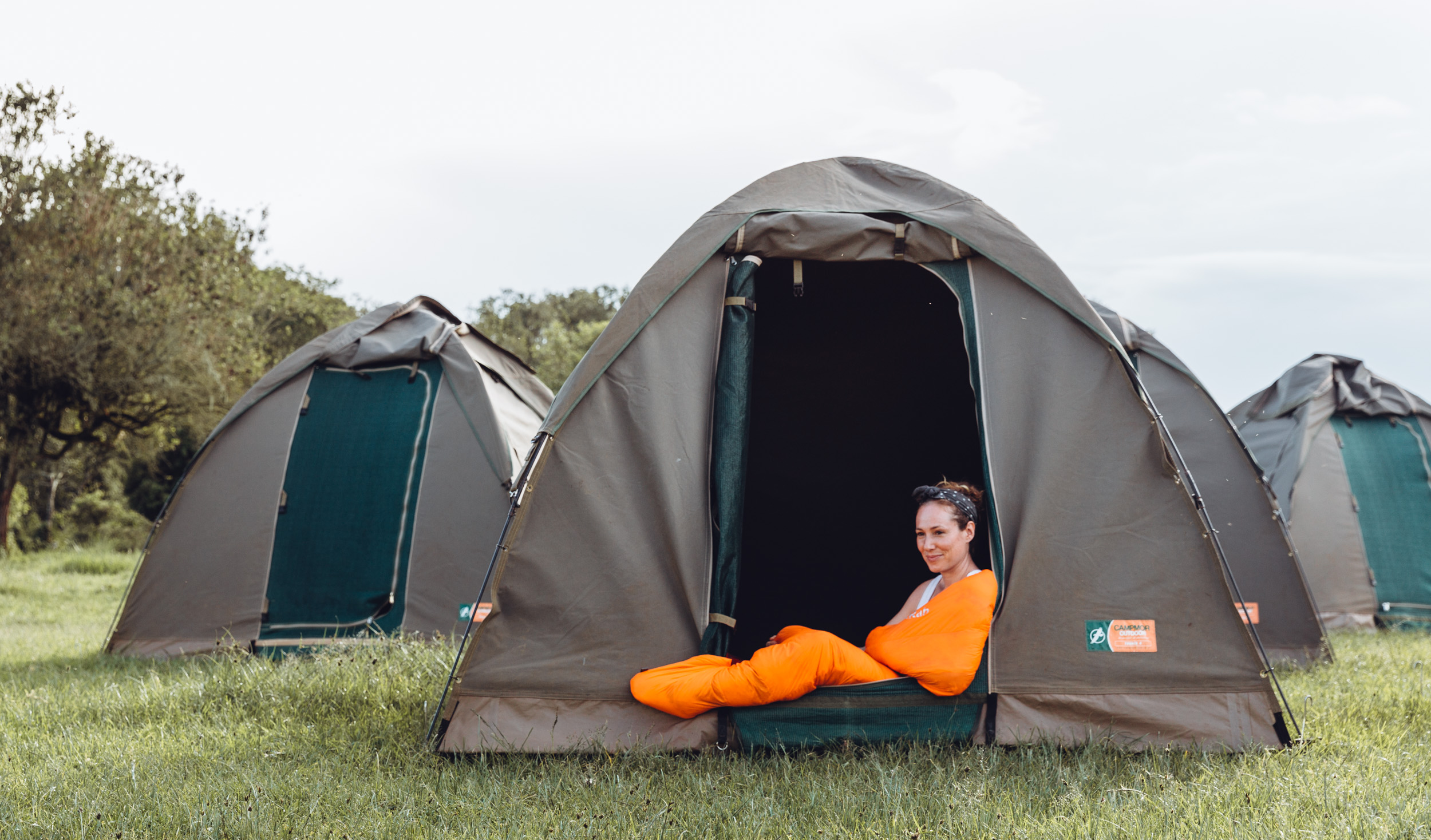Hands up if you get confused about currency conversions, withdrawing money abroad and keeping your money safe when you're travelling?
Just like toilets, take-away food and transport, each country has its own quirks and challenges for travellers when it comes to cash - and it can be difficult to work out the most effective way to source and manage your money abroad and reduce the amount that you lose on hidden fees or charges. Throw in paranoia about the best way to keep your money safe in a hostel or out on the street, and it's probably one of the things that we all stress over too much before and during a trip.
And, if you think that this is only an issue for people on long-term adventures through countries with different currencies and rates of development, then think again! Even on a weekend break within Europe, there are a number of simple mistakes made by travellers which result in a more expensive and stressful holiday.
After over a decade each of travel, we've put together our tried-and-tested pieces of advice to help you better manage your money on your travels.
never ever ever EVER exchange money at the airport
Whenever we're flying away, we always wonder who exactly is keeping all the currency exchange kiosks in the airport in business.
And, as soon as that thought crosses our minds, someone will appear with wads of cash and a smile on their face as they hand it over to the person on the other side of the glass.
BIG MISTAKE!
Unless you're Scrooge McDuck, then you should avoid airport currency exchanges at all costs. The terrible exchange rate here is based on desperation and your lack of preparation - you will lose much more than you expect.
traveller's cheques are dead
So, yeah, that's that question answered.
stay up to date with the foreign exchange rate
Having a nifty little free app on your phone is particularly useful if you're travelling across a number of countries with different currencies. We use XE, where you can store up to 10 currencies offline so you can do an instant exchange rate calculation to work out the costs as you cross from one country to another (or have to do a quick transaction after the border to pay for a bus, a snack and a cerveza and make sure it's only costing you £3 and not £30).
Remember, the app will show the pure exchange rate, so you'll never get a rate this good from any bank, app or money exchange guy. However, it's a good indicator of how much hidden commission someone may be charging you to exchange foreign currency and to quickly get your head around local prices in a new place.
always select the local currency when paying
We're not sure if this is a recent trick by banks, but it's something we first noticed last year in Poland...and it keeps happening ever since! We know our parents have fallen victim to it more than once and, in conversations with others, it's clearly something that confuses a lot of people.
We're here to tell you the definitive answer.
So, the scenario is that you're paying for a nice bottle of the local booze with your credit card. The friendly cashier in, let's say Spain, offers you the opportunity to pay on the little machine in GBP (your home currency) or in EUR (the local currency). You may assume that paying in GBP is going to be cheaper, easier or more sensible?
Wrong.
It's a trick called dynamic currency conversion, and it's estimated that one-in-five foreign transactions are affected - UK travellers alone waste just under £500m a year falling for it. The reason it's bad? Instead of your card provider determining the rate of exchange after the transaction, it will be imposed either by the local bank or the store at their pre-determined rate - and it's always going to be heavily in their favour.
This trick is also used by ATM machines - again, just make sure you always select to withdraw in the local currency, not your home currency.
don't take all your money with you in a sock...
When a member of Emily's family came to visit us in Costa Rica, it was quite terrifying the amount of money they brought along. From a security perspective is it silly to bring so much hard currency with you, but it's also wholly unnecessary in the 21st century (more on that later).
Travelling Latin America for two years meant that we sometimes had no option but to carry a lot of money in our backpacks (here's looking at you Argentina), largely because of necessity or taking advantage of a favourable exchange rate. Unless you have a good reason to do otherwise, your money is much safer in the bank (even if you do have to pay to get it out...), rather than all stuffed in a variety of socks at the bottom of your backpack.
...but know where to get it cheap before you leave
Although we favour using ATMs abroad to source hard cash, it is sensible to arrive in a new country with enough local currency to see you comfortably through the first few days. This means you can take things easy and pay for the shuttle bus, the hostel and the first few beers without much hassle.
As you are never going to exchange money at the airport ever again, you need to know that online exchange services usually offer better rates to get foreign currency than doing it on the high-street. Travelex is a decent option for buying and exchanging currency online, and you can then collect it at one of their stores or have it delivered before you leave.
How much physical cash should you take abroad? That really is up to your own preferences, spending habits and the infrastructure at the country you're visiting. It's a good idea to take more cash with you to Nepal than, for example, the USA.
Note that some countries, such as Morocco, have currency restrictions which makes it very difficult to source bank notes outside their territory, whilst others countries may only have very small amounts of their currency available for exchange in the UK. In this instance, your best option is to find an ATM in the airport when you land (change a small amount at the airport if there's no ATM); this will tide you over until you can visit a bank or foreign currency exchange office and exchange or withdraw larger amounts.
always have emergency currency
However, something we will always have stuffed away on a trip is some emergency back up currency. This is to help us out if we're in a jam (i.e. we've been robbed) or we can't find an ATM and need to get some local currency quickly.
We're afraid our humble pound is no longer a heavyweight in this regard (and this was before Brexit...). However, whether you're in a bar in Buenos Aires or have just entered Bangladesh, you will always manage to get by with some US dollars and, increasingly, euros. Make sure these emergency notes are in good conditions, stored somewhere safe in your bag and are in smaller denominations (i.e. 10s and 20s) rather than 50s and 100s.
don't take just one bank card
Cards can get lost, or stolen, or stop working, or get mysteriously snapped in two, or eaten by an ATM. If you're setting off for any trip - but particularly on a long-term one - you should take at least two debit cards abroad with you as well as a credit card.
And, now for the important bit....keep them in different places at all times! Never ever ever store them all together.
pay with credit card, not a debit card
Most UK credit cards don't charge any fees or commission for usage overseas, and your transaction is converted at excellent bank exchange rates. For this reason, we always try to use our credit cards for as much spending as possible overseas (paying in a restaurant or supermarket, settling the hotel bill), but we never ever ever take money out of the ATM with it (because it will charge you a lot for the privilege).
Nearly every UK debit card is, on the other hand, awful for purchases overseas - so keep it in your pocket solely for ATM withdrawals and emergencies.
Of course, don't go crazy and put your entire trip on your credit card - you've still got to travel according to your budget and be able to pay off all those adventure spends a few weeks later!
understand your bank's limitations
Most banks still haven't caught up with the fact that most of us travel more than we used to and we want to access our money without too much hassle overseas. Due to this, with our current UK bank, we have to phone them up (there's always a queue) to inform that that we're going away and that we might be using our card in country X or Y over the course of the next few weeks, so please please don't block it after the first time I use it.
It's not the biggest difficulty when it comes to managing your money when you travel, but it is something where the process could be a whole lot easier. So, before you depart, square off the situation with your main bank to avoid a panic in Marrakech or trying to call them for 45 minutes on Skype over a crap internet connection in La Paz once your card has been blocked
Before you leave, also make sure you're aware of how much your bank is going to charge you for usage overseas and take a note of the number to call from overseas to report any lost or stolen cards.
Read Next | 10 things to do 48 hours before any trip
ATMs are not your enemy, but not always your friend
Now, although we have spouted our anger at the amount we have had to pay on ATM withdrawal fees in the past, there's no doubt that the proliferation of ATMs all over the world is of huge benefit to us travellers. Think about it - you can go pretty much anywhere with a Visa or Mastercard symbol, take out a little plastic rectangle and securely access your hard-earned dosh in the form of some strangely coloured or named local currency (Andrew's personal favourite is the Vietnamese dong).
That's pretty cool.
The downside however is that this little example of globalisation at its finest doesn't always come free.
It varies bank to bank and ATM to ATM, but with our UK debit card, we're charged a £1 non-foreign usage fee and a commission of 2% on the withdrawal amount, in addition to whatever the ATM charges us to use it (we think the most we ever paid was $8 USD for a single transaction in Argentina).
That can all add up, especially if you're travelling long term - there are however some ways you can avoid these fees entirely, or minimise them by planning ahead. We've written in more detail about this issue, and our solutions, here.
plan ahead before you withdraw cash
We have a little routine to ensure that we've minimised the risks before we head out to the ATM or to exchange large amounts.
Firstly, and we know this won't be possible for everyone, we try to always do this together - an extra set of eyes and ears is a fantastic deterrent to anyone targetting distracted or disoriented tourists with lots of cash in their pockets.
Secondly, if being forced to take out lots of money in one fell swoop, we do it as a standalone event or only do it on the way back to our hostel. There is simply no point in wandering around a city with a pocket or daybag stuff full of superfluous cash. Instead, withdraw it from the ATM and head straight back to store it somewhere secure in your room or locker.
At the ATM, always take note of your surroundings before taking out the money - if it feels like a dodgy area, then try to find one in a more secure environment. Also, card scams at ATMs are becoming more prevalent, so shield your pin.
get a starling card for travel
There have been a handful of great new travel-oriented start-ups in the UK, and Starling is now leading the way. Since we've been using their debit card and bank account on our travels in 2017, we haven't paid a single ATM withdrawal fee.
Yep, that's right.
They're trying to make banking modern, and the result is something fantastic for UK travellers. It's free to get one, it can be used wherever there's a Mastercard symbol, it charges no fees to spend or withdraw cash overseas, has excellent exchange rates, and it's all managed by a great little app on Android or Apple. We travelled South America for 4.5 months, and didn’t pay a single withdrawal fee as we just used our Starling cards and bank account.
So, yeah, we think it's pretty great and you'd be silly not to get one. In fact, your best bet is to get a Starling card, a Monzo card (see more below), and a Revolut card, as they all offer better functionality and terms for accessing your money overseas than most traditional banks. If you bring several, it not only gives your confidence and a back-up if you lose one, but it allows you to take advantage of their various travel benefits whilst they still have them.
Unfortunately, Starling is only available for UK residents - do you know of any similar cards in your country? Let us know in the comments.
*Update May 2019 | We originally recommended Monzo in addition as one of of the best cards and bank accounts for travellers, but they changed their terms and now only permit £200 in overseas ATM withdrawals per month. After this, it has a 3% charge for foreign withdrawals. With its app functionality and features, it's still a really good option (especially if you are just on a short-term break each month) and we still carry our cards, but Starling is now our go-to choice.
hand-to-hand money exchange is sensible in some places...
Although it may go completely against your natural instincts, it is perfectly acceptable (and advisable) in some countries to change your money with a man or woman on the street.
If you're crossing a land border in Latin America or Asia, for example, it is a common sight to have several people crowd with you brandishing calculators and a thick stack of notes. We would never exchange vast amounts of money at this juncture, but sometimes it was necessary to catch that onward bus, get rid of the previous country's notes or just to give us peace of mind that we were covered for the next 24 hours.
And it's not just at borders - in a number of cities, particularly in countries with fragile economies - the currency converters on street corners and in little shops are king.
...but keep your eye on the calculator
However, that doesn't mean you should trust them one jot.
Lots of money. Numbers. Different languages. New currencies. New country. Crowds around you.
It's a perfect storm for you to get pick-pocketed or, more likely, ripped off. They're all armed with calculators which they'll type your numbers into very very quickly, sometimes inaccurately. Some of these calculators also have a trick button which automatically deducts some money from your total, which you might not spot until that person is a long way away.
So, our advice is to always head to the border with an awareness of what the exchange rate is that day (another reason to have the XE app on your phone) and ask around a few exchangers to get an idea of what the rate is amongst them. Also, when they are doing their sums on the calculator, do your own sums on your phone or a piece of paper beforehand. Don't make yourself a gringo target by changing obscene amounts of money and only hand over your money to them AFTER they've given you theirs!
Lastly, check a few of the notes they give you whilst you're doing the transaction to make sure they're genuine. In short, be an awkward bugger to show that you've put in a bit of though on this money exchanging lark and are not going to be taken for an easy ride.
know a new country's coins and notes
A new country's currency can often feel like Monopoly money - especially if it comes in denominations in their thousands. Once you have a fresh stack of notes though, it does pay to take a minute or two just to understand which notes are low value, which are high value and which ones you may easily end up confusing when paying for a bottle of coca-cola. On countless occasions we've been convinced that we've either been short-changed or handed over the wrong note to somebody in our first few days in a new country simply because the 1,000 note looks remarkably similar to the 50,000 note.
know how to carry money when travelling
At home, it's likely you've got a wallet stuffed full of crumpled receipts, coffee shop loyalty cards, a plethora of bank cards, a random assortment of coins and odd bits of memorobilia.
Why on earth do you need all that with you in Guatemala?
On the road, we prefer to take a low risk approach with cash-related items and leave the wallet at home. When heading out for the day, we'll take enough cash with us to cover our plans and any spontaneous adventures, but will split it up between us. We'll also take a card each for emergencies.
That is it.
No wallet or other repository which just screams to a would-be pickpocket - "HERE ARE ALL OUR ITEMS OF VALUE, PLEASE TAKE ME". Take out what you need, with some extra for emergency situations, and then store the rest securely elsewhere - remember, the more you bring out, the more there is to lose.
If you're not a fan of keeping cash in your pockets, then there are a couple of discreet and secure on body money storage items which come highly recommended in the travel community - this money belt is popular and this little keyring which can hide notes is a cool idea.
Read Next | 13 COMMON MISTAKES WITH TRAVEL INSURANCE
always keep your travel budget in mind
A budget might be less important on a short city break in Girona or Brighton, but on a long-term trip it is vital to stay abreast (stop giggling at the back) of your overall spend.
In Latin America, we used a budget app (and then our own spreadsheet on steroids) to help us keep track of daily spending - it really does help and will stop you spending half your monthly budget in the first week!
keep your money separated in your backpack
If you are forced to carry a lot of currency with you at one time or another on your trip, then be sensible about how you arrange it. If we have a lot of cash with us after a big ATM withdrawal, then we'll split it up and hide it strategically as soon as possible between our backpacks, daypacks and our person. This has resulted in quite a few arguments about where the hell we have left our money (and then accusations of loss or theft!), but it's served us quite well.
The golden rule is to keep your two or three main sources of funds separate and securely hidden away - never store all your cards and all your cash together in one item or piece of luggage. The scenario that we all want to avoid is being stranded abroad with no money or cards because it's all been lost or stolen in one fell-swoop.
If you're not sure about how to store cash in your daybag or main backpack, then check out this fake suncream bottle.
set a reminder to review your bank statements online
If you have been sensible and following all of the above steps, then you are on your way to being a travel money zen-ninja! However, the last thing you want to happen is to find out there have been some strange transactions on your account OR you end up forgetting to pay off that credit card bill and all your good work is undone by a late payment fee.
Set a reminder on your phone a couple of days before you have to pay off your bill and use this as an opportunity to take a quick review of the transactions to make sure there is no suspicious activity - in Bolivia, our credit card was cloned in a supermarket and it wasn't until a few weeks later that we realised someone had been spending quite a bit of money without our permission (thankfully the bank refunded it all).
Of course, if you get a Starling card or similar, then you only have to open your app to do this.
check for change before you leave
And the last aspect of managing your money on your travels?
On your last day in a country, in the midst of the frantic packing and bickering about who lost what where or why you shouldn't have had that second bottle of wine last night, take a couple of minutes to empty out pockets and purses to see if the are any coins or crumpled notes. It's amazing how often we'll discover a small fortune (or that money we were convinced was stolen!) which will cover off a couple of coffees in the airport or our last breakfast before crossing the border for new adventures in a new country.


















